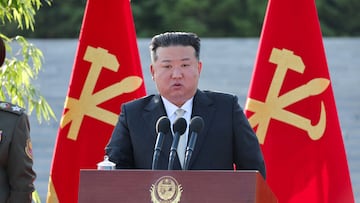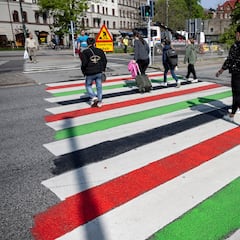Why is North Korea dropping trash on South Korea with balloons?
This bizarre episode highlights the deep-seated animosity between the two nations which are technically still in a state of war.


In the continuing conflict between the two Koreas, North Korea has resorted to a peculiar tactic - dropping trash on South Korea using large balloons. This provocative move is part of an ongoing war of words and actions between the neighboring nations, with the roots of this issue lying in the long-standing tensions between North and South Korea.
For years, Korean activists on both sides of the 38th-parallel have been launching balloons carrying propaganda materials across the border. In response, North Korea has now taken to filling balloons with various forms of refuse, including debris, bottles, outdated batteries, leaflets, fertilizer, and assorted waste, and releasing them into the skies above South Korea.
“Mounds of wastepaper and filth will soon be scattered over the border areas and the interior of the Republic of Korea and it will directly experience how much effort is required to remove them,” North Korea’s vice-minister of defence Kim Kang Il said in a statement to state media on Sunday.
Some real hater shit, inspirational really https://t.co/JCMWpdKqFI
— incognito tab #3 (@notcrypticno) May 29, 2024
The balloon drops have caused consternation in South Korea, with authorities scrambling to clean up the mess and address the security concerns. The incident has also sparked international condemnation, with critics accusing North Korea of engaging in a childish form of protest.
Related stories

U.S. remains in the 26% over Palestine
However, they are not expected to be met with serious retaliation from the South Koreans. The two sides have not engaged in direct combat since 1953.
“These kinds of grey zone tactics are more difficult to counter and hold less risk of uncontrollable military escalation, even if they’re horrid for the civilians who are ultimately targeted,” Peter Ward, a research fellow at the Sejong Institute, said.
